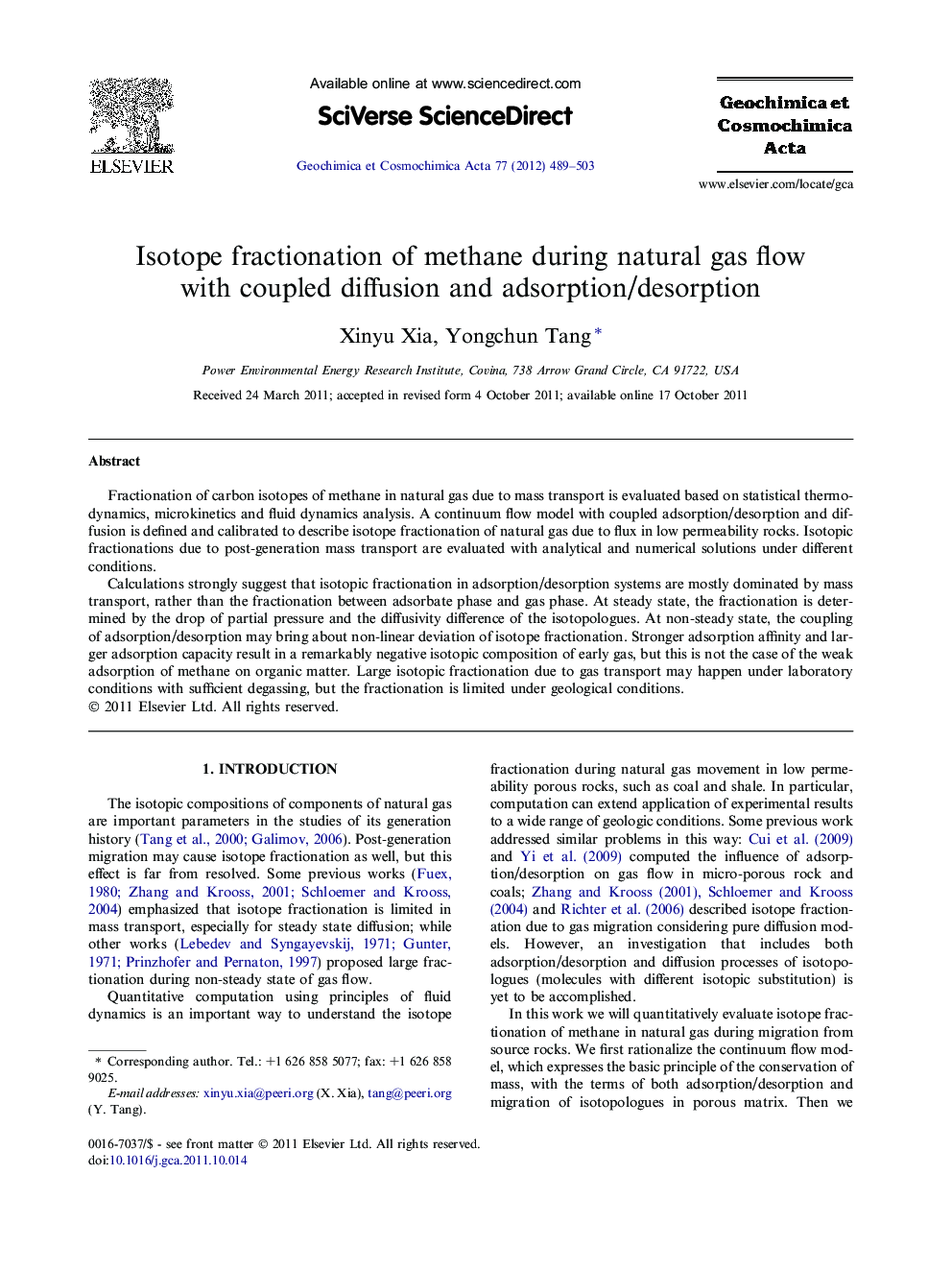| Article ID | Journal | Published Year | Pages | File Type |
|---|---|---|---|---|
| 6439396 | Geochimica et Cosmochimica Acta | 2012 | 15 Pages |
Abstract
Calculations strongly suggest that isotopic fractionation in adsorption/desorption systems are mostly dominated by mass transport, rather than the fractionation between adsorbate phase and gas phase. At steady state, the fractionation is determined by the drop of partial pressure and the diffusivity difference of the isotopologues. At non-steady state, the coupling of adsorption/desorption may bring about non-linear deviation of isotope fractionation. Stronger adsorption affinity and larger adsorption capacity result in a remarkably negative isotopic composition of early gas, but this is not the case of the weak adsorption of methane on organic matter. Large isotopic fractionation due to gas transport may happen under laboratory conditions with sufficient degassing, but the fractionation is limited under geological conditions.
Related Topics
Physical Sciences and Engineering
Earth and Planetary Sciences
Geochemistry and Petrology
Authors
Xinyu Xia, Yongchun Tang,
